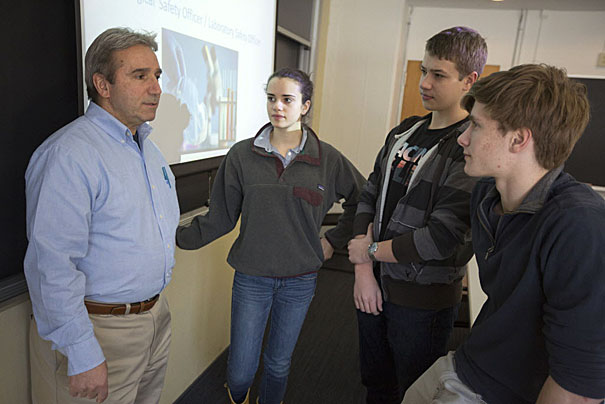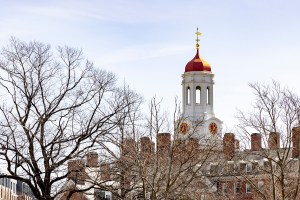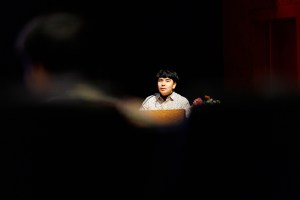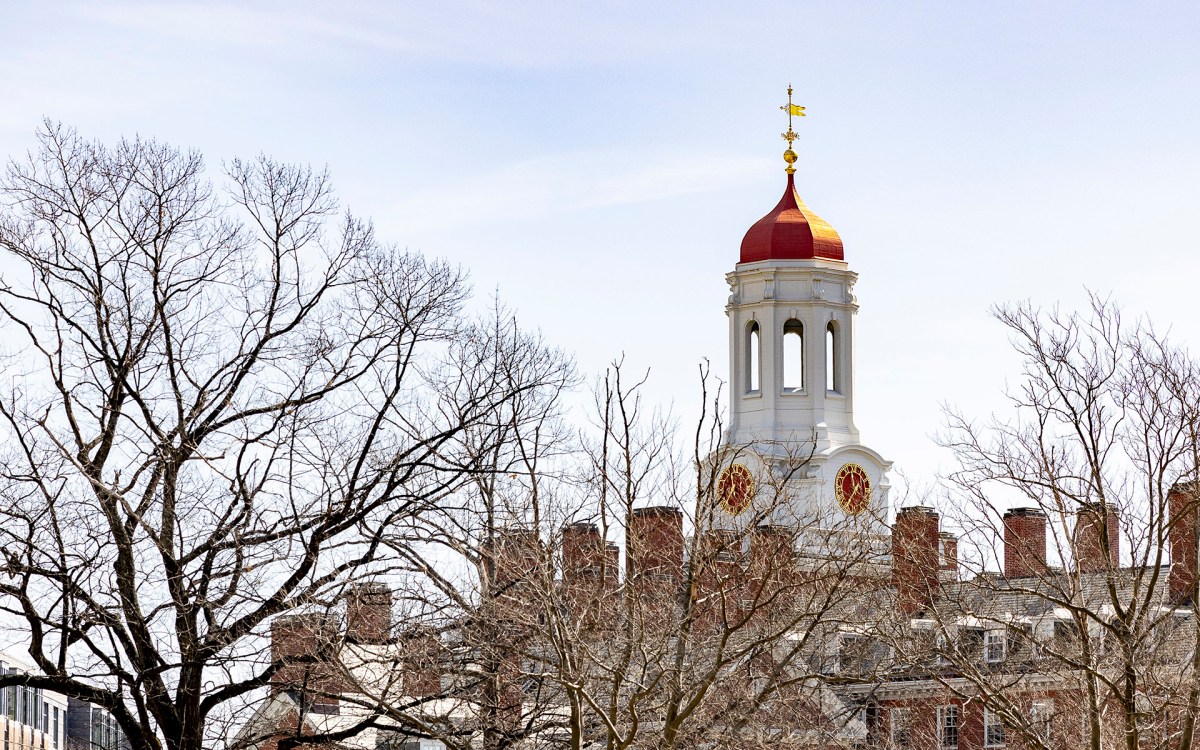
Harvard’s laboratory biosafety officer Sid Paula (from left) met with Cambridge Rindge and Latin students Ariella Schear, Hough Harding, and Andre Dempsey. The students are members of the CRLS Marine Science Internship program, which provides hands-on lab experience at Harvard.
Kris Snibbe/Harvard Staff Photographer
A successful community experiment
Harvard welcomes high school interns in the labs
In a conference room of the BioLabs building, three high school seniors from Cambridge Rindge and Latin School (CRLS) considered the impact their senior internship — working hands-on in a Harvard research lab — might have on their upcoming college careers.
“I’m thinking about a career in the physical sciences, either chemical engineering or biochemistry,” said Andre Dempsey, who will be a freshman at Harvard next fall, “so it’ll be great to have that connection and to have that lab experience even before I’m a student here.”
“I’m really excited about it,” said Ariella Schear, who plans to attend Yale next year. “The research is amazing, and we’re really lucky to have this opportunity.”
The students are members of the CRLS Marine Science Internship program at Harvard, which works to provide a transformative experience for local students. The teenagers get hands-on lab experience, working alongside Harvard graduate students and researchers on projects with real-world applications. The program is a result of a partnership, forged in 2006, between Paul McGuinness, the marine biology teacher at Rindge and Latin, and Peter Girguis, the John L. Loeb Associate Professor of the Natural Sciences in the Department of Organismic and Evolutionary Biology at Harvard.
One of McGuinness’ motivations for establishing the program was to increase the numbers of underrepresented students in marine science. “Having the opportunity to develop this unique internship here in the Cambridge Public Schools allows me to reach out to a wider demographic and encourage more students to experience real-world marine science research and careers,” he said.
“It’s some of the best experience that students can have in their entire high school careers,” McGuinness continued. “It’s a different level of academics — much more rigorous, intensive, and fun, where they can apply everything they’ve learned in high school.” And it’s working to serve his ends, too: McGuinness said the internships have greatly influenced students to pursue careers in science.
“Almost all [the former interns] are in the sciences, from undergraduate through postgraduate careers,” he said.
Structured to benefit both interns and lab staff, the program allows graduate students communicate their research, connect with the next generation of scientists, and get an extra pair of hands in the lab. “It’s definitely not just a one-way process,” McGuinness said. “We’re always looking for labs that are willing to take on interns.”
Girguis studies microbes that live in the deep sea and develops instruments to better study them, understand how they function, and promote life across the planet. In his lab, the high school students examine microbial fuel cells, process bioinformatics data, and dissect aquaria samples. Each intern is paired with a grad student or postdoctoral student who serves as a mentor throughout the internship. The internship concludes with a capstone project that reviews the lab work.
Girguis said having high school students as “active and participating members of the lab” has been rewarding for the teens, and shown how effective working in the lab can be for them. And he said he was struck by the opportunities already available to Rindge and Latin students in marine biology, including regional and national competitions.
“That alone tells me something about the school system, namely that they are supportive of innovative programs that offer their students unique and valuable experiences,” he said.
Girguis said the partnership allows Harvard to make a powerful difference in the local community — what he called “an intrinsic part” of Harvard’s mission.
“Engaging local students in the research that we do is a very effective way to earn the respect of the community,” he said, “to let kids in our community see what we do every day, and give them a chance to learn from it.”
This program is one of many at Harvard that engage local students. To learn more about the University’s partnerships with local schools, visit Harvard Community Connections on the Web.




